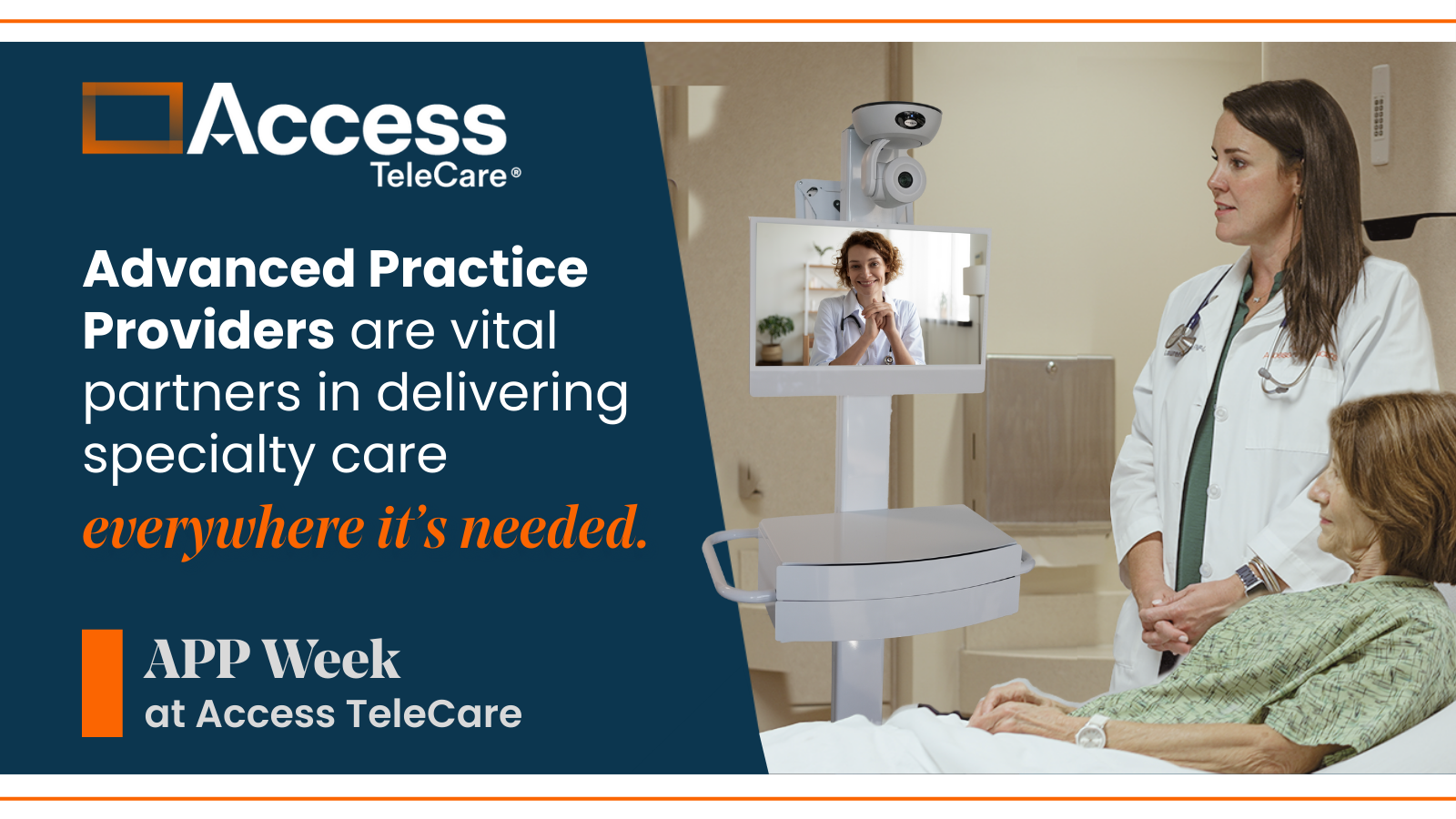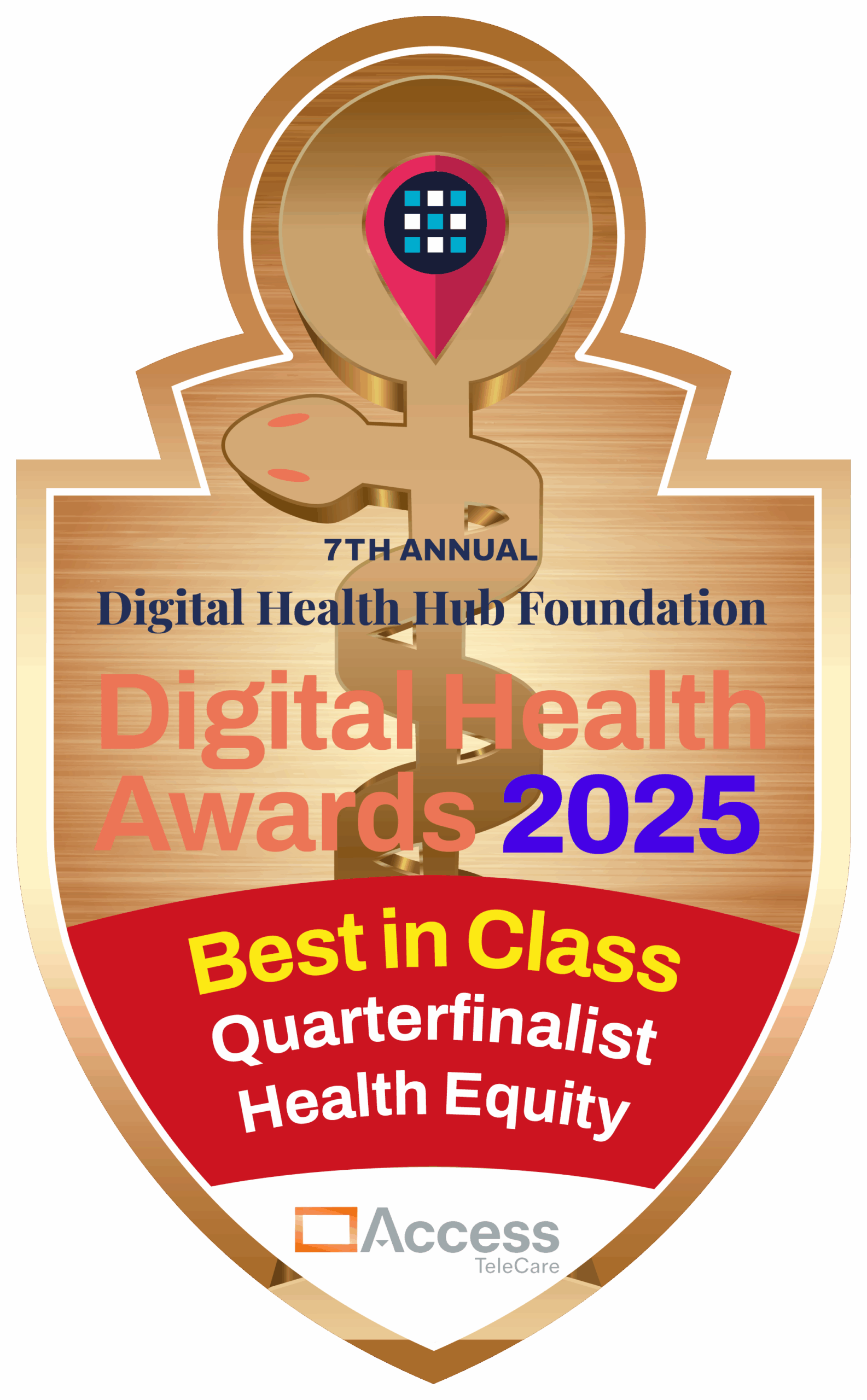As part of the Becker’s Healthcare Annual Meeting in Chicago, Chris Gallagher, MD, FACC, CEO of Access TeleCare, shared compelling perspectives on how acute telemedicine is reshaping both patient care and hospital operations across the country.
Here’s what he talked about:
Scaling Specialty Telemedicine Nationwide
Under his leadership, Access TeleCare now reaches over 215 million Americans across 2,600 virtual-care programs, reinforcing Dr. Gallagher’s conviction that timely access to specialists saves lives and boosts hospital performance.
“We serve just under one in five U.S. hospitals. This year we’ll have 1 million video visits inside of hospitals … We have eight specialties that we serve our hospitals with. We deliver technology, we deliver clinical services… Every program we build is really centered around the principle that timely care changes outcomes.”
Hybrid Care Models: Bridging Rural and Urban Gaps
Dr. Gallagher also highlights how telemedicine has moved beyond mere access in remote areas to become an integral augment to urban hospitals, ensuring uninterrupted specialist coverage day and night.
“Five years ago, 70 percent of our programs were rural; today 70 percent are urban. The evolution isn’t zero-to-one anymore, it’s about creating a 24/7 envelope of care, pairing in-person teams with virtual teams across every specialty.”
Demonstrating ROI Through Retention and Outcomes
By framing telemedicine programs around clear clinical objectives (transfers avoided, length of stay managed, specialist consults delivered), Dr. Gallagher ensures each partnership delivers measurable financial returns.
“When we launched the virtual ICU, our CFO agreed to check it every 90 days. We grew ICU census from 2 to 8.5 beds, managed ventilated and septic-shock patients in-house instead of flying them out, and improved case-mix index, proving this was an investment, not an expense.”
From Virtual ICU Pioneer to Telemedicine Leader
Dr. Gallagher traces his journey back to that inaugural virtual ICU, noting how it proved both clinically transformative and operationally scalable, laying the groundwork for a career dedicated to specialty telemedicine.
“My first role in healthcare was as a hospital CMO. In that role, I had the opportunity to launch the first virtual ICU in Texas. That was really the genesis for my involvement in virtual care.”
Dr. Gallagher illustrates how experience in rural areas during medical school in Lubbock, Texas, at the Texas Tech Health Sciences Center revealed the opportunities in telemedicine. These experiences eventually led to the development of Access TeleCare’s first telemedicine systems to deliver specialty care in areas that would not have otherwise been able to access critical services.
The Future of Virtual Care: Team-Based Innovation
“Yes, there’s technology involved, but the true innovations are in the care models: how we deliver team-based care, augmenting boots on the ground with virtual specialists. That’s where the rapid evolution will continue.”
Looking ahead, he sees telemedicine as an enduring fixture of hospital strategy, driven by open-mindedness toward AI-enabled tools and novel team structures rather than by hardware alone.
Dr. Gallagher’s leadership underscores a simple mantra: timely care changes outcomes.
As specialty telemedicine scales from pioneering virtual ICUs to holistic, hybrid clinical models, hospitals that embrace these innovations can improve patient access, enhance financial performance, and lay the groundwork for the next era of healthcare delivery.









